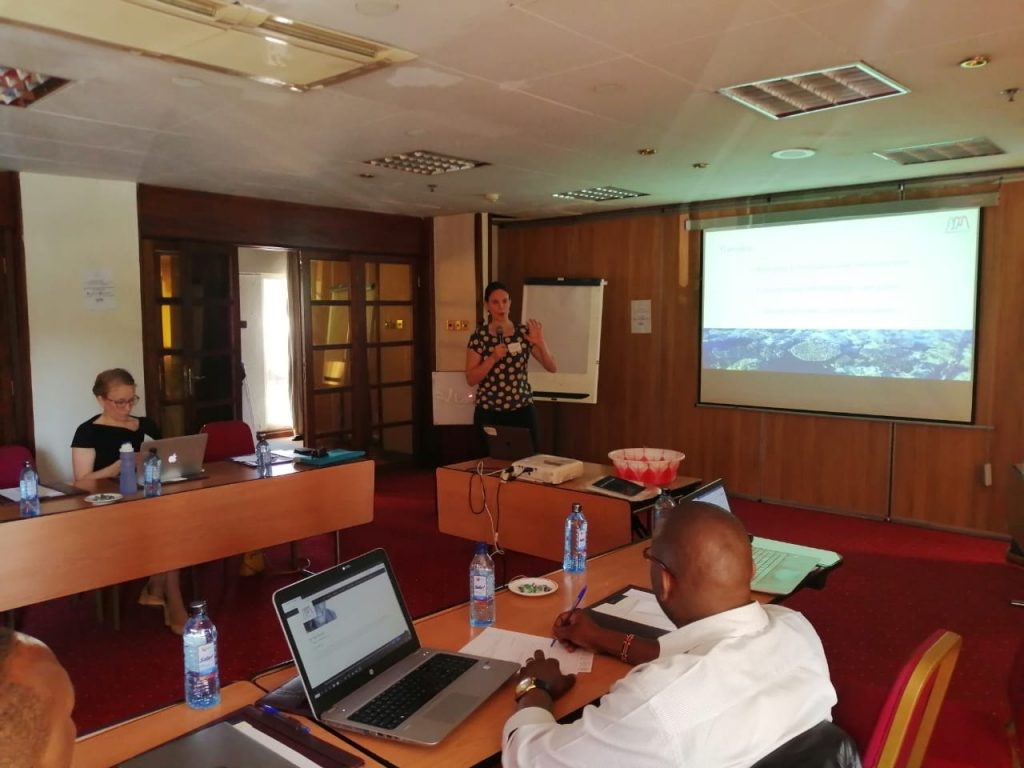
INTERNATIONAL TRAINING ON CLIMATE CHANGE AND DEVELOPMENT
BACKGROUND
Climate change poses significant challenges to global development, affecting economies, ecosystems, and human well-being. Rising temperatures, extreme weather events, sea level rise, and shifting climate patterns threaten food security, water resources, public health, and infrastructure. These challenges require an integrated approach that balances economic growth, environmental sustainability, and social resilience.
The “Climate Change and Development” course, offered by the Environmental Capacities and Sustainability (ECAS) Institute, explores the intersection of climate change and sustainable development. The course examines how climate change impacts development goals and how policies, technologies, and strategies can be leveraged to promote low-carbon, climate-resilient growth. Participants will gain a deep understanding of climate adaptation, mitigation, financing mechanisms, and governance frameworks that support sustainable development in a changing climate.
Through a combination of theory, case studies, and practical exercises, this course provides participants with the tools to integrate climate considerations into national policies, sectoral strategies, and community-based initiatives. It is designed to equip policymakers, development practitioners, and industry leaders with the knowledge and skills to drive climate-smart policies and sustainable development practices.
OBJECTIVES OF THE TRAINING
This course aims to:
- Provide a comprehensive understanding of the relationship between climate change and sustainable development.
- Explore the economic, social, and environmental consequences of climate change on development.
- Introduce key climate policies, international agreements, and governance structures.
- Examine mitigation strategies for reducing greenhouse gas emissions and transitioning to low-carbon economies.
- Assess adaptation strategies for building resilience in vulnerable communities and sectors.
- Explore climate finance mechanisms and how they support sustainable development.
- Highlight the role of the private sector, civil society, and governments in climate action.
- Provide practical tools for integrating climate change considerations into development planning and policy-making.
WHAT YOU WILL LEARN
Participants will gain:
- A strong foundation in climate science and its implications for development.
- An understanding of how climate change affects economic growth, poverty reduction, and resource management.
- Knowledge of key international climate agreements and governance structures.
- Insights into climate change mitigation, including renewable energy, energy efficiency, and emissions reduction strategies.
- Practical approaches to climate adaptation, disaster risk reduction, and resilience-building.
- Exposure to climate finance mechanisms such as the Green Climate Fund and carbon markets.
- Tools for mainstreaming climate considerations into national and local development policies.
- Case studies of successful climate action programs from different regions and sectors.
DURATION AND PROGRAM
TARGET PARTICIPANTS
This course is designed for policymakers, development practitioners, environmental planners, economists, researchers, and climate professionals working in government agencies, international organizations, NGOs, and the private sector.
It is also suitable for professionals in finance, agriculture, infrastructure, and social sectors who need to integrate climate resilience into their work. The course will benefit individuals seeking to enhance their knowledge of climate-smart development policies, financing options, and implementation strategies.
TRAINING MODULES
| No | Module | Details | |
| 1. | Understanding Climate Change and Development |
|
|
| 2. | Climate Change Governance and International Agreements |
|
|
| 3. | Mitigation Strategies for Low-Carbon Development |
|
|
| 4. | Climate Adaptation and Resilience Building |
|
|
|
5.
|
Climate Finance and Investment for Development |
|
|
| 6. | Private Sector Engagement in Climate and Development |
|
|
| 7. | Integrating Climate Change into National and Sectoral Planning |
|
|
| 8. | Case Studies and Practical Applications |
|
|
TRAINING STYLE
This course employs a participatory and experiential learning approach, combining expert-led lectures, interactive discussions, and real-world case studies to enhance understanding.
Participants will engage in hands-on exercises, group work, policy simulations, and problem-solving activities to apply climate and development concepts in practice. Workshops, debates, and networking sessions with policymakers, climate finance experts, and sustainability professionals will provide practical insights into real-world challenges. Additionally, digital tools, scenario analysis, and storytelling techniques will be used to improve communication and advocacy skills.
9. GENERAL NOTES
- Training manuals and additional reference materials are provided to the participants.
- Upon successful completion of this course, participants will be issued with a certificate.
- We can also do this as a tailor-made course to meet organization-wide needs. Contact us to find out more: info@ecasiafrica.org.
- Payment should be sent to our bank account before the start of training and proof of payment sent to: info@ecasiafrica.org.
ABOUT ECAS INSTITUTE
The ECAS Institute designs and delivers independent and targeted training, research, and consulting services. Our work focusses on climate change and resilience building, carbon markets, renewable energy, nature-based solution, biodiversity conservation, agriculture and food systems, We are located in Nairobi Kenya and work across the African region. We have implemented training and research assignments in Kenya, Tanzania, Uganda, South Sudan, Somalia, Malawi, Rwanda, Congo, and South Africa. Globally, we have supported our partners from the UK, Denmark, Italy, Sweden, Germany, and USA.
